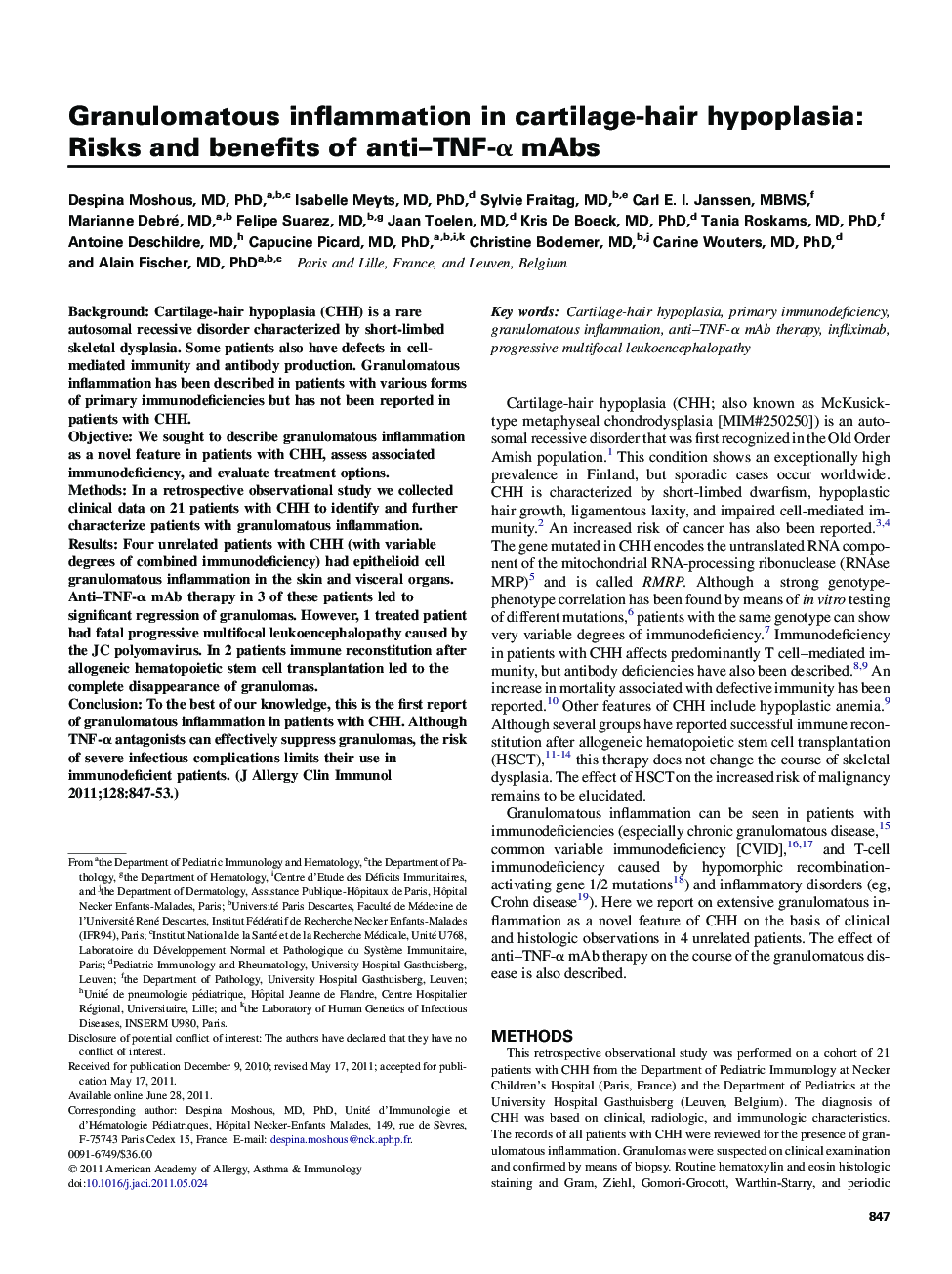| Article ID | Journal | Published Year | Pages | File Type |
|---|---|---|---|---|
| 3199454 | Journal of Allergy and Clinical Immunology | 2011 | 7 Pages |
BackgroundCartilage-hair hypoplasia (CHH) is a rare autosomal recessive disorder characterized by short-limbed skeletal dysplasia. Some patients also have defects in cell-mediated immunity and antibody production. Granulomatous inflammation has been described in patients with various forms of primary immunodeficiencies but has not been reported in patients with CHH.ObjectiveWe sought to describe granulomatous inflammation as a novel feature in patients with CHH, assess associated immunodeficiency, and evaluate treatment options.MethodsIn a retrospective observational study we collected clinical data on 21 patients with CHH to identify and further characterize patients with granulomatous inflammation.ResultsFour unrelated patients with CHH (with variable degrees of combined immunodeficiency) had epithelioid cell granulomatous inflammation in the skin and visceral organs. Anti–TNF-α mAb therapy in 3 of these patients led to significant regression of granulomas. However, 1 treated patient had fatal progressive multifocal leukoencephalopathy caused by the JC polyomavirus. In 2 patients immune reconstitution after allogeneic hematopoietic stem cell transplantation led to the complete disappearance of granulomas.ConclusionTo the best of our knowledge, this is the first report of granulomatous inflammation in patients with CHH. Although TNF-α antagonists can effectively suppress granulomas, the risk of severe infectious complications limits their use in immunodeficient patients.
